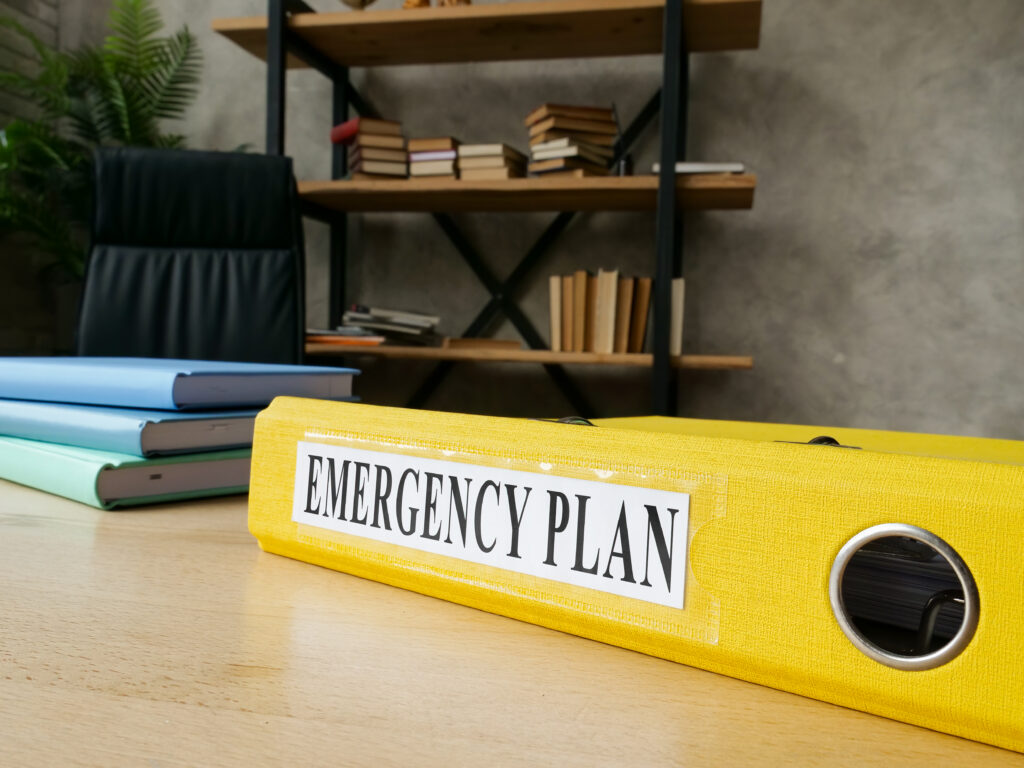Five Steps to Prepare a Disaster Plan for Your Business
- Contributor
- J.P. Tujague
Aug 26, 2024
Is your business truly prepared for a disaster? While most companies have a business plan, many overlook the importance of a disaster plan—guidelines designed to minimize the impact of unforeseen events, whether natural or otherwise.
Though the likelihood of a disaster affecting your business may be slim, the potential consequences make it essential to have a plan in place. Preparing now ensures your business can survive and recover if the unexpected happens.
Below are five steps recommended by CRI’s team of advisors to disaster-proof your business.
1. Back up your records—including bank statements, tax records, and insurance policies.
Every business relies on documentation as a part of its day-to-day operation. So it only makes sense to make sure important documents and vital records are not only kept safe but backed up in the event of a loss. Fortunately, the digital age makes this process easier. Businesses should consider storing all documents like insurance policies, historical and year-to-date financial statements, loan documents, and contracts. Store these and all of your backed-up business records in the cloud or on external hard drives to keep them safe. Tax records should be backed up too. Scan your W-2s, tax returns, and other tax-related documents and convert them to an electronic format. Where’s a “safe” place to store your files on external hard drives? Logic dictates that it’s not in or around your place of business. After all, having originals and duplicates in the same place doesn’t help if that place is damaged or destroyed.
2. Document valuables and equipment.
Inventory and document the physical assets of your operation. This step will make things a lot easier should you ever have to make casualty loss claims with your insurance company.
- Make a detailed, room-by-room list of your business equipment and other valuables. Be sure to include model and serial numbers, if applicable.
- It’s also a good idea to have a video or photographic record.
- Again, store these records in an off-site location – away from the geographic area at risk.
3. Take action on financial planning
It’s crucial for businesses to take the proper steps necessary when it comes to their financial planning. Always be sure to check on fiduciary bonds by asking your provider if a bond is in place. This option can protect you in the event of default by your payroll service provider. You should not only assess your liquidity requirements but also plan to meet current debt obligations and immediate continuing expenses like salaries and rent. Don’t forget to assess your insurance policies—especially your business interruption policies.
4. Create a continuity plan.
- Plan in advance to manage any emergency.
- Assess how your company functions and determine which staff, procedures, and equipment you require to keep your business operating.
- Document specific steps related to IT, accounting backup and restoration, team communication, payroll, and customer and vendor management, and designate who is responsible for each function.
- Identify the operations critical to survival and recovery.
- Establish procedures for succession of management.
5. Keep your emergency plan up-to-date.
Emergency planning is not a one-and-done situation. Your plan should be updated annually to reflect changes in business and personnel. Just as important is to hold employee meetings on a regular basis to review the emergency plan. Things to consider with your emergency plan:
- Know what kind of disasters are most likely in your area (such as floods, earthquakes, tornadoes, hurricanes) and develop your plan accordingly.
- Determine where to seek shelter in the event of an emergency.
- Develop a plan for communicating with employees, customers and others should phone and internet services be disrupted.
- Identify the safest evacuation route for employees and periodically conduct evacuation drills.
- Assemble a disaster supply kit that includes first aid supplies, a battery-powered radio, an NOAA weather radio with an alert function, and a portable generator.
- Periodically test your procedures and evaluate the results.
The IRS can help
If there is a disaster in your area and you are affected, the IRS can provide previously filed tax returns and all attachments, including Forms W-2.
CRI is ready to help when disaster strikes
Unsure which financial records to back up in case of a disaster? CRI’s business consultants can guide you through the entire process, helping you prepare and securely store all essential documents. Reach out today to ensure your records are protected.
























































































































































































































































































































































































































































































